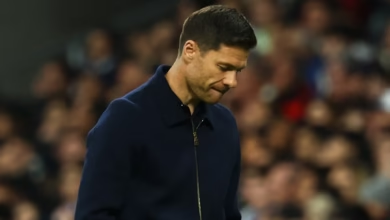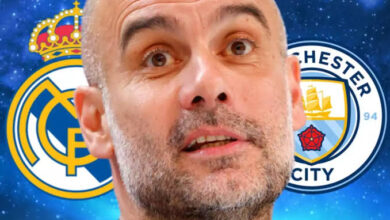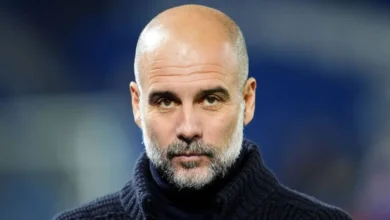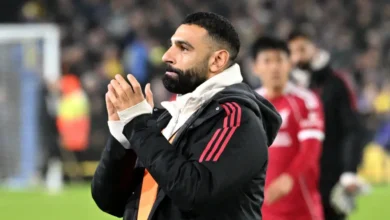Man City privately concerned about Foden’s mental fatigue and on-pitch struggles

Less than a year after leading Manchester City to their fourth consecutive Premier League title and being named PFA Players’ Player of the Year, Phil Foden’s season has taken a disappointing turn. Despite being widely hailed as one of the brightest talents in English football just twelve months ago, the 24‑year‑old has endured a difficult 2024/25 campaign, scoring just ten goals and delivering five assists across thirty‑eight appearances. That decline hasn’t gone unnoticed by those closest to him, with City players reportedly expressing private concerns over a combination of mental fatigue and physical struggles that have hampered his performances on the pitch.
The downward trend was first flagged by journalist Jack Gaughan writing for the Daily Mail, who described how the Manchester City dressing room had become increasingly worried about Foden’s condition. He noted that Foden appeared to have lost weight visibly and was dogged by a “secretive physical issue,” the nature of which remains undisclosed, that prevented him from hitting his usual high standards ([Sports Mole][1]). That season started with a return from Euro 2024 that appeared to leave him mentally drained. After helping England reach the final, where they were ultimately beaten, Foden admitted later that he felt mentally fatigued once he returned to club duty and did not consistently start games for City until November.
Fans and pundits have speculated that burnout from playing an extraordinary number of matches contributed significantly. In the prior season, Foden featured in over fifty matches for Manchester City alone, scoring twenty‑seven goals and setting up twelve more, while also representing England at a major tournament, pushing his tally close to sixty games in twelve months. Such a relentless schedule reportedly left him physically and mentally exhausted, a fact he himself acknowledged . He later explained that when the brain is “mentally fatigued,” he cannot function as the player he normally is, and his body did not feel as sharp as usual
Foden also admitted to reading social media comments and criticism directed at him, which he said had begun “spiralling out of control.” His awareness of online negativity reportedly exacerbated his mental exhaustion, as he kept checking what was being written about him, adding another strain to an already difficult season. According to Gaughan, teammates were privately uneasy, and yet neither the club nor Foden’s representatives offered comments in public, contributing to speculation around his condition
Pep Guardiola’s side has struggled overall during the campaign. Key figures like Kevin de Bruyne and Bernardo Silva have also delivered below-par seasons, and Foden’s struggles have mirrored City’s slide down the Premier League table, where they sit in fifth with only the FA Cup left to fight for after early exits from both the Champions League and Carabao Cup ([BeSoccer][6]). It has been their worst season in years, a stunning decline given their prior era of dominance. Many believe that Foden’s difficulties have played a significant part in that down
Foden himself refused to shy away from criticism, openly describing the campaign as frustrating. He told BBC Sport that multiple factors had affected him: “It’s been difficult. I had a bad ankle injury sustained at Old Trafford in April against Manchester United, and it took time to heal before I could push myself back into training,” he said. “I’ve had a lot of things going on off the pitch mentally. Sometimes there’s things in life that are bigger than football. This season I’ve struggled a little. Hopefully come next year I can get my head mentally right, get back where I left the season before, because I know what I’m capable of doing and the quality I have” . He also mentioned that the club had been supportive and that if everything off the pitch was okay, he knew he would be better on it.
Media coverage during the season detailed how Foden’s ankle ligament injury after the derby at Old Trafford left him playing through pain for weeks. Reports said he returned to training earlier than medically ideal, which worsened the condition and affected his performances in the run-in and the FA Cup final, where he featured off the bench in defeat to Crystal Palace ([BBC][7], [The Guardian][8]). His inability to complete full matches became common, as he failed to play ninety minutes in over a month at one point and recorded just one assist in eleven appearances after a brief return to form January.
Some commentators speculated the illness that delayed his start in the season might have even been long‑COVID, describing symptoms such as brain fog and fatigue that persisted into early 2025 ([Reddit][9]). Reddit users and fans voiced concern in online forums, describing dystopian performances and expressing belief that his instinct, confidence, and positioning were completely off during both club and international duty ([Reddit][10]). One fan lamented that Foden “acts like he has a back injury” and “offers nothing” in midfield or on the wing, echoing others who questioned why he was still starting for England when others were performing better.
Despite both praise and anguish from fans, particularly from City supporters who insisted that every player goes through peaks and troughs and pointed to Foden’s brilliance in the previous title-winning season, the drop in form sparked talk of rest and recovery as essential steps. One Reddit fan wrote, “Honestly, I wish Pep would give him the rest of the season off. Let him rest, recoup,” urging a break to preserve his long‑term value.
Former pundit Stuart Pearce criticized Foden’s lack of creativity and impact for England, naming him among three players who had underperformed nationally despite tremendous domestic reputations. Pearce said that despite Foden’s talent, his recent performances had not delivered what was expected at international level ([Talksport][12]). Arsène Wenger and other analysts similarly questioned how to unlock the potential of players like Foden, Grealish, and Palmer, whose form in England kits has lagged behind their Premier League exploitt
Still, as the season closed, Foden began to show signs of a revival. In the opening match of the 2025 FIFA Club World Cup in the United States, held in mid‑June, he scored the opener and provided the assist for Jeremy Doku as Manchester City beat Wydad AC 2‑0, offering hope that the forward could recapture his previous form. His contributions in that match were viewed as a promising start to the post‑De Bruyne era, with City needing his creativity in midfield more than ever
Transfer speculation also arose. Tony Cascarino, a former striker turned pundit, suggested Arsenal might consider a shock move for Foden due to Manchester City’s significant spending in 2025 and the necessity of balancing the books by offloading players. He argued Foden needs regular football ahead of the next World Cup, and Arsenal’s manager Mikel Arteta—himself ex‑City assistant—might value his talent. According to Cascarino, City’s €291 million transfer spend that summer opened the possibility of selling Foden among others.
Through it all, Guardiola maintained unwavering support. He repeatedly stressed that all Manchester City wanted was to help Foden, emphasizing that rest would come and that performance would follow once Foden felt better mentally and physically. “I don’t care about his performance on the pitch,” Guardiola said, “I want him to feel good, and after, the rest will come in an easy way.” He confirmed that Foden would travel to America for the Club World Cup and that steps would be taken to ensure he had the recovery time he needed after the season ended.
Phil Foden’s 2024/25 season then became a case study in how elite footballers suffer under the weight of extreme physical schedules, personal pressure, injuries, and public scrutiny. He went from Premier League and PFA Player of the Year one season to struggling with form, fitness, and fatigue the next, scored far fewer goals, and endured runs of matches without contributions. Both club and country saw him diminish as his mental and physical wellbeing deteriorated. Foden himself admitted that there were larger issues beyond football to handle, and he looked ahead to next season in the hope of recalibrating both mind and body to reach the levels he and others expect of him
Whether he remains at Manchester City or moves elsewhere, Foden’s path forward will depend on managing workload, recovery, and mental health. The season illustrated just how fragile peak form can be under sustained pressure. Fans and analysts will be watching to see if the return to form at the Club World Cup marks the start of a new, more sustainable chapter for him—or whether a fresh beginning might benefit his long‑term trajectory. For now, Manchester City players remain privately concerned, but publicly supportive, and the hope is that a full offseason, proper rest, and continued backing from Guardiola will help Phil Foden rediscover the confidence, creativity, and consistency that made him one of Europe’s most celebrated midfielders.














